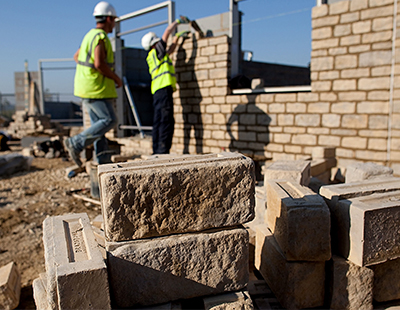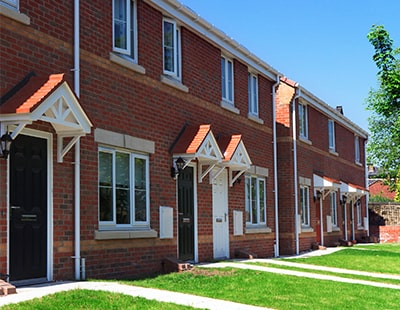In this guest piece, Guy Horne, co-founder and chief executive of HSPG, sets out why provision of affordable and supported housing is vitally important if the government's much discussed levelling up agenda is truly to work.
The UK housing crisis has reached new levels of urgency in the wake of Covid-19. But while the pandemic has shone a spotlight on the chronic shortage of affordable and supported housing in the UK, it is not a new problem.
Through our work at HSPG, I have seen first-hand the significant need to increase the UK’s housing supply. With steadily increasing house prices, and rents dramatically outpacing real wages, catering for the country’s most vulnerable and in-need communities must be at the forefront of the government’s housing strategy.
Following the recent cabinet reshuffle, the new Secretary of State for Levelling Up, Housing and Communities, Michael Gove, faces a significant task in managing these issues. As he tackles the most pressing matters of our housing crisis, a new and decisive approach to increasing the availability of affordable and supported housing will be crucial to “Levelling Up” in the UK.
Addressing the shortage of affordable homes
The need for affordable housing is nothing new, yet the effects of the pandemic have dramatically aggravated the issue. At least 130,000 households were made homeless during the first year of the pandemic, while, in May, almost 2 million private renters relied on Universal Credit or housing benefits for their rent.
With an end to the temporary UC uplift, eviction ban and furlough scheme, in addition to stagnating wage growth and rising house prices during lockdown, for many people housing security now feels more precarious than ever before. The recent surge in energy prices and tough winter ahead also suggest that, while lockdown restrictions have eased, new challenges and financial burdens could face many of Britain’s most vulnerable households in the coming months.
Clearly, these are not temporary problems. With recent reports suggesting that social housing waiting lists could increase to over two million households in 2022, these issues must be addressed for the long term. If “Levelling Up” is to be a success, a large-scale provision of affordable and supported housing must be at the top of the agenda.
Converting unused space – A way to help communities and the planet
As supply and labour shortages impact housebuilding and local authorities consistently report falling short of targets, new solutions to our housing crisis can and must be found. This is an excellent opportunity for the new housing secretary to instigate a step change in approach and supplement building targets with sustainable and innovative methods to solve the housing crisis.
One cost-effective solution is converting disused retail and office space into residential accommodation. Indeed, recent estimates have suggested that conversion projects could provide up to 450,000 new homes – a significant contribution to addressing the demand for housing – as well as supporting wider regeneration of our high streets and town centres.
At HSPG, we are proud to have been involved in schemes converting disused retail space into much-needed supported housing, including the transformation of a former William Hill retail unit into flats for people who have experienced domestic violence and redeveloping a former Lloyds TSB branch to house people at risk of homelessness alongside our new-build projects across the UK.
Critically, this approach is not only financially reasonable, but also helps to meet sustainability goals. A recent report, steered by the Royal Academy of Engineering, suggests that repurposing empty structures is critical to circumvent the substantial CO2 emissions caused by demolishing and rebuilding on a large scale. Advances in technology and data modelling can aid in recognising how outdated or disused buildings can be retrofitted swiftly, ensuring a sustainable pathway towards residential conversion.
With COP26 still firmly on the horizon, these methods can bring clear benefits for the government’s sustainability agenda. In fact, Britain’s built environment currently accounts for 40% of the country’s greenhouse gas emissions. So, tackling the housing crisis in a manner which aligns with net-zero carbon emission goals is not only an attractive short-term solution to an urgent problem, but also a first step towards sustainable practices for the future.
A new approach to partnerships
However, government and local authorities cannot and should not be left to tackle this crisis alone. At HSPG, long-standing partnerships with local authorities help us to deliver much-needed Supported and Affordable Housing, supporting local authorities to meet their obligations under legislation such as the Homelessness Reduction Act 2017 and empowering them to deploy funding where it is most urgently needed.
As a result, more money is freed up to go towards the support needed by the most vulnerable members of our society. Ultimately, a working culture of local authorities partnering with private organisations, housing providers and social impact investors is one which should be embraced by the Housing Secretary if he seeks to effectively tackle this crisis.
Where next?
New leadership presents an excellent opportunity to change the UK’s approach to tackling its chronic housing crisis. This change is a vital one for those most in need of support in our communities and, as
a result, delivering much-needed Affordable and Supported Housing must be at the top of the agenda if the government is serious about levelling up. I urge Michael Gove to embrace these new and productive approaches in order to truly make a difference through housing.
*Guy Horne is co-founder and CEO of HSPG, which was founded by Horne and his Manchester-based school friend, David Searle, in 2015. They set out to solve the UK homeless crisis, believing everyone should have access to a comfortable and safe home.



/MichaelGove-400x310.jpg)

/MichaelGove-400x310.jpg)
/BorisJohnson-4-400x310.jpg)












Join the conversation
Be the first to comment (please use the comment box below)
Please login to comment